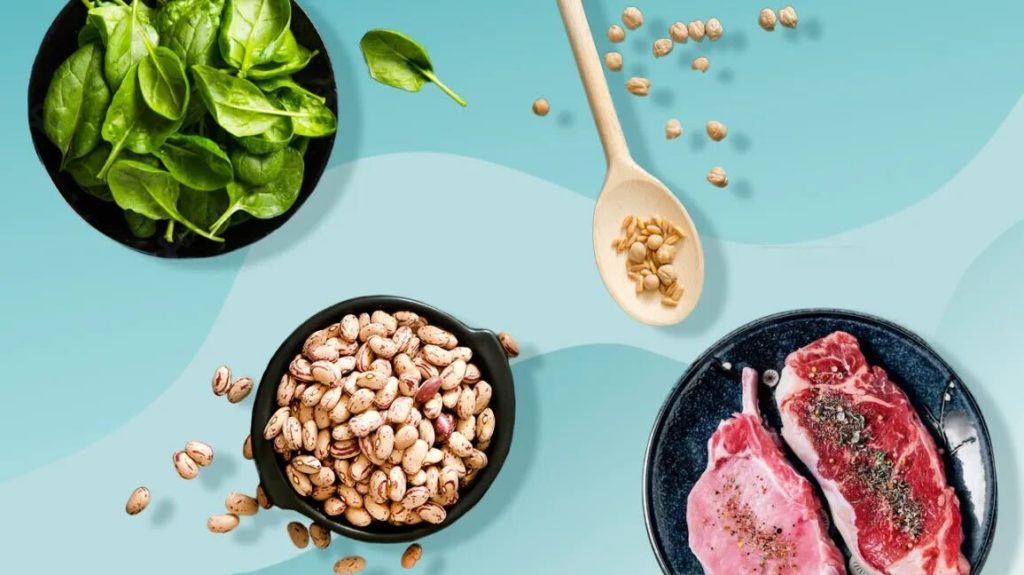
February 21, 2020 at 03:00PM by CWC
It started with the comeback of the Mediterranean diet. After being named the best diet of 2019 by U.S. News and World Reports, healthy eaters started searching for more ways to minimize meat consumption, getting their protein from other sources, like seafood and legumes. And while we’re only mere months into 2020, plant-based eating—where a person eats less meat and animal products in favor of more fruits, vegetables, nuts, seeds, and legumes—is already proving to be the dominant eating plan of choice, not just a passing fad.
There are many reasons that have led to the rise of more people minimizing their meat consumption. Many believe it to be healthier. Some are drawn to it because research has shown plant-based eating is best for the planet and the most sustainable way to live. Others give up meat (or animal products completely) because of ethical reasons and animal rights. Now eating less meat has become a hot topic in wellness and with all the alternative products on the market, living a vegetarian or vegan lifestyle is easier than ever. But given that meat in particular is an excellent source of complete protein and iron, as well as other nutrients, the ascendence of plant-based eating has some people wondering if it’s even healthy to go, well, cold turkey.
ADVERTISEMENT
ADVERTISEMENTKate Spade Autumn/Winter Sale |
Here, plant-forward registered dietitian Amy Gorin, RD explains the health benefits of not eating meat, or minimizing meat consumption. She also gives expert tips on how to make sure you’re not missing out on any nutrients and tips on eating less meat, if that’s something you’re interested in trying.
Unpacking the different diet types that minimize meat
Whether you want to cut back on the amount of meat you consume or want to nix it from your diet completely, there are several different eating plans that may help you meat your goals. Here are the biggies:
Vegan: Vegans avoid animal products completely, not eating meat, dairy, eggs, fish, and even honey. Many also extend their habits to other areas of their life, like not buying or wearing products made of leather or fur.
ADVERTISEMENT |
Vegetarian: Vegetarians don’t eat meat, but they may eat dairy, eggs, and other products where an animal was involved in the process but not killed.
Pescatarian: People who don’t eat meat but eat fish are pescatarians. Most pescatarians eat dairy and eggs, but some don’t.
Flexitarian: This is a person who has a primarily vegetarian diet but occasionally eats fish or meat.
Plant-based: Someone following a plant-based diet may eat meat, but doesn’t make it the main focus of their diet or meals. (It’s pretty similar to flexitarianism.)
Are there health benefits to not eating meat or eating less of it?
According to Gorin, there are several benefits to minimizing meat consumption, and even giving it up completely. “Studies have definitely shown that eating a vegetarian diet can have many health benefits,” she says. Here, she explains some of these benefits:
1. Eating less meat is good for heart health. “One study in [the journal] Nutrients found that eating a vegetarian diet can help decrease your risk of Type 2 diabetes and coronary heart disease,” Gorin says. On a related note, other studies have shown that diets high in red meat consumption increase these risks, going hand-in-hand with the study Gorin highlights.
2. Minimizing meat consumption is connected to healthy weight management. Gorin points out that the same study published in Nutrients highlighted above shows that a vegetarian diet is also connected to healthy weight management. Maintaining a healthy weight is linked to better cardiovascular health, another reason why these benefits are linked.
ADVERTISEMENT

ADVERTISEMENT
Anya Hindmarch - I AM A PLASTIC BAG3. Meatless days are correlated to better overall health. You don’t have to give up meat completely to reap many of the benefits. “Eating less meat and filling in those gaps in your diet with more plant-based foods can definitely provide benefits,” Gorin says. “One study in [the journal] Public Health Nutrition found that flexitarians had healthier diets on the days they ate meatless diets.” Of course she points out that it isn’t enough just to minimize meat consumption; you have to replace it with foods linked to bettering health.
4. You may lower your risk of cancer. Data from the Oxford Vegetarian Study found that a flexitarian diet (which in this case included fish and poultry, but not other forms of meat) was correlated to lower risk of certain cancers, including colon cancer. The researchers found that people who ate this way found it easier to eat more vegetables and fruit than those who didn’t, one major reason for the link.
5. A vegetarian diet could be good for your gut. One study published in the journal Frontiers in Nutrition found that sticking to a vegan or vegetarian diet could help boost the good bacteria in the gut; participants who didn’t eat meat had higher levels of certain good bacteria than participants who did eat meat. One reason the researchers give for this is that the vegan and vegetarian groups ate more fiber than the meat eaters, and fiber is really great for gut health.
How to get all the nutrients you need without eating tons of meat
Eating meat does have health benefits, specifically protein, iron, zinc, magnesium, and B vitamins. So if you give it up, it’s important that you’re filling these nutritional gaps with other foods. Here’s what to add to your grocery list, according to Gorin:
1. Soy: “Soy-based foods such as tofu and edamame are complete vegetarian proteins that provide not only protein but also fiber,” Gorin says. Being a complete protein means it has all nine essential amino acids.
Soy has a controversial rep in the wellness world, but here’s why RDs generally love it:
2. Nuts: Nuts are a good source of protein, healthy fats, and fiber. Gorin’s favorite is pistachios. “Many people don’t know that pistachios are among the highest-protein snack nuts,” she says, adding that she likes to add them to her salads for extra crunch.
3. Beans: “I love to recommend that people include beans, such as kidney beans, pinto beans, and black beans in their diets,” Gorin says. “Beans provide protein, fiber, and many other nutrients.” One way she recommends trying beans that you might not have thought of: making a white bean pizza.
4. Seafood: “If you’re looking to cut back on meat consumption, seafood can be a good protein-rich food to add to your diet,” Gorin says. “Fatty fish such as salmon and sardines supply the heart-healthy omega-3s EPA and DHA, in addition to an excellent amount of protein.”
Tips for eating less meat
If you’re used to a meat-centric diet but have a health goal to eat less, Gorin has one big tip: Pack your pantry so that you’re set up for success. “One of the really great things about plant-based eating is that it’s easy to stock up on a supply of ingredients that will last a really long time—longer than fresh meat!” she says. “Fill your pantry with boxed tofu, cans of beans, and bags of nuts.”
When it comes to eating out, Gorin says her biggest piece of advice is to really take time to read the whole menu. “You may have to make some adjustments when eating out, but they’re actually pretty easy to do so. Often times, if an ingredient is listed somewhere on a menu, it’s fair game,” she says. “So if you want a salad, you can ask to swap out steak or chicken breast for the hardboiled egg that you see elsewhere on the menu.” More often than not, waiters and chefs are happy to make the substitutions.
Here are some more times on eating a more plant-forward diet. And these are the biggest question a registered dietitian gets when it comes to not eating meat.
Author Emily Laurence | Well and Good
Selected by CWC

ADVERTISEMENT
ADVERTISEMENTUp to 30% off Gift Sets |









